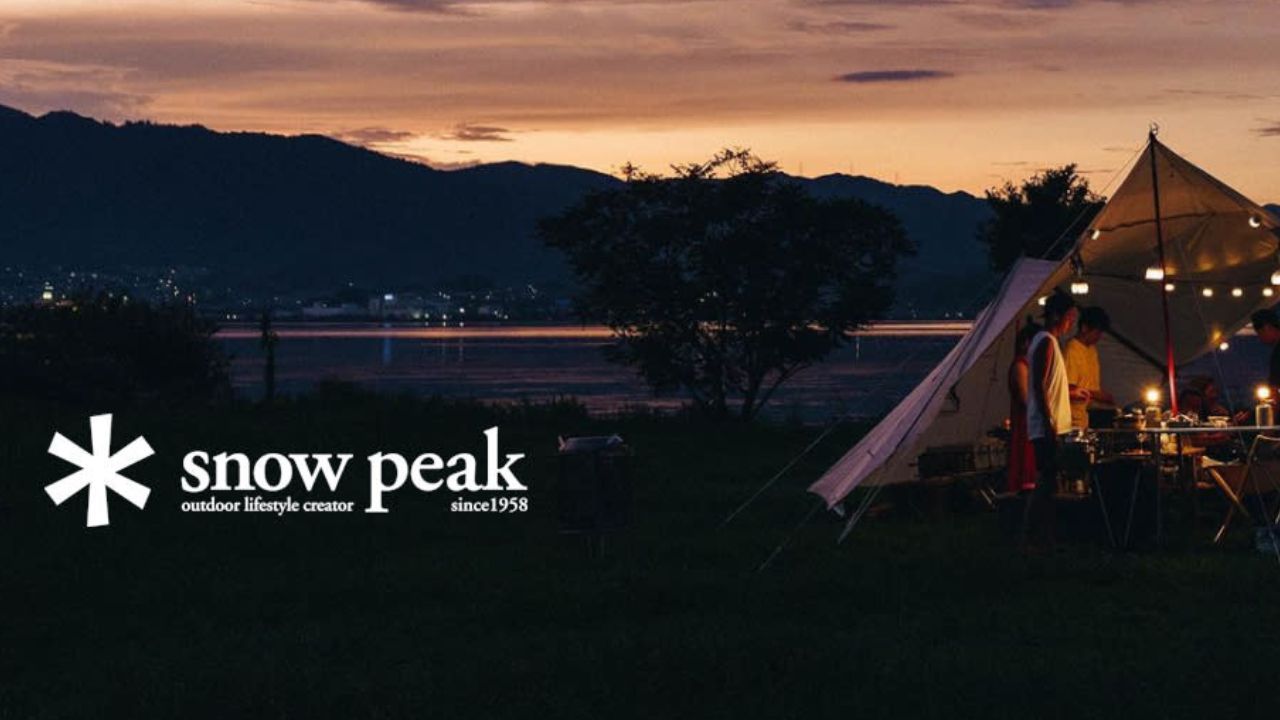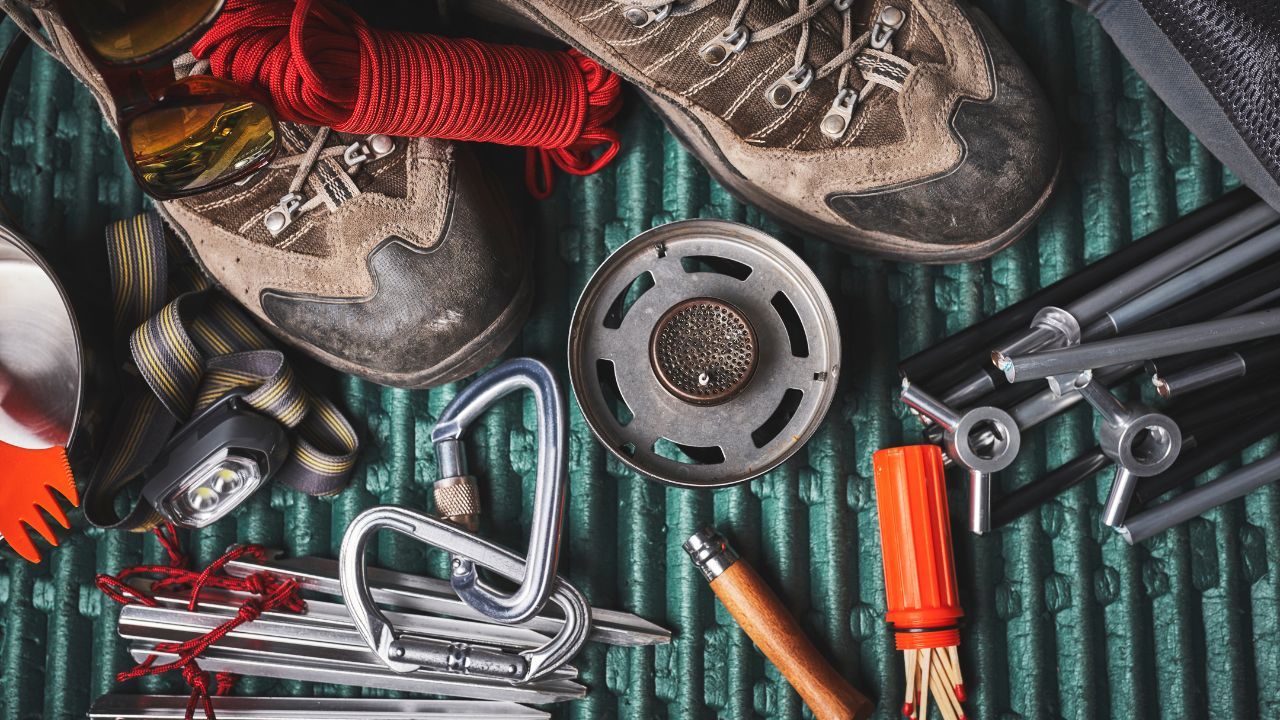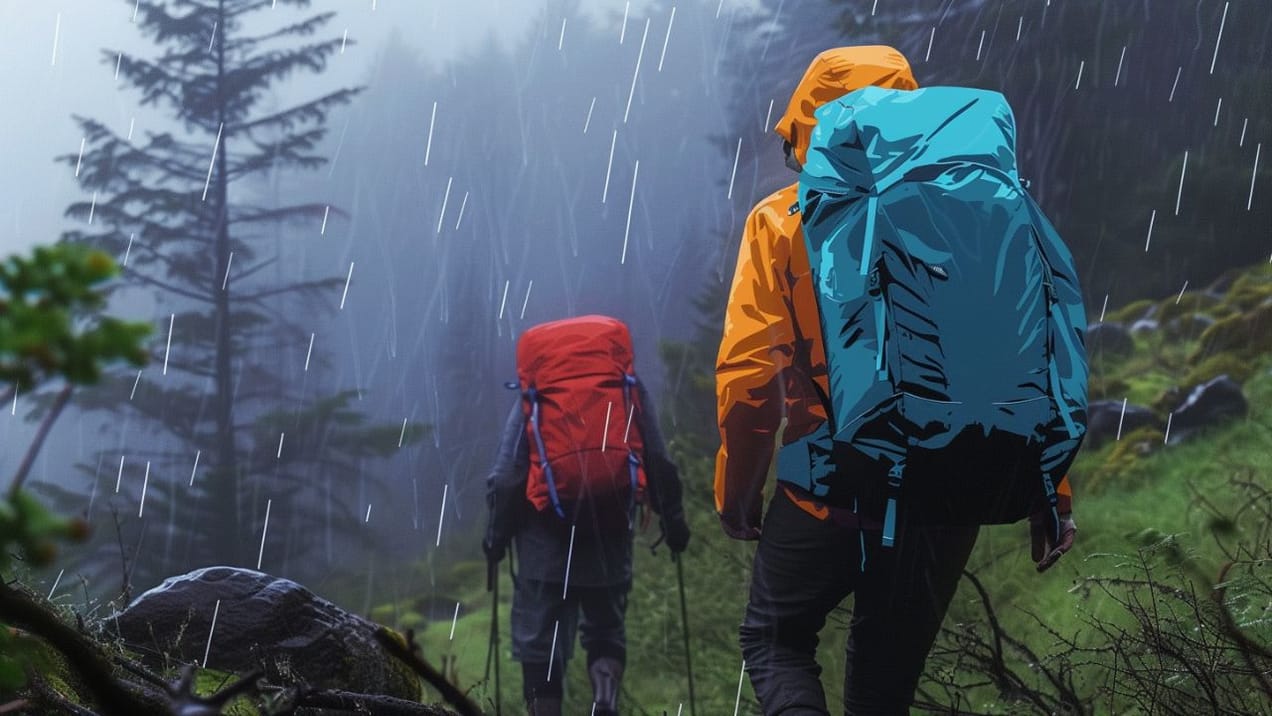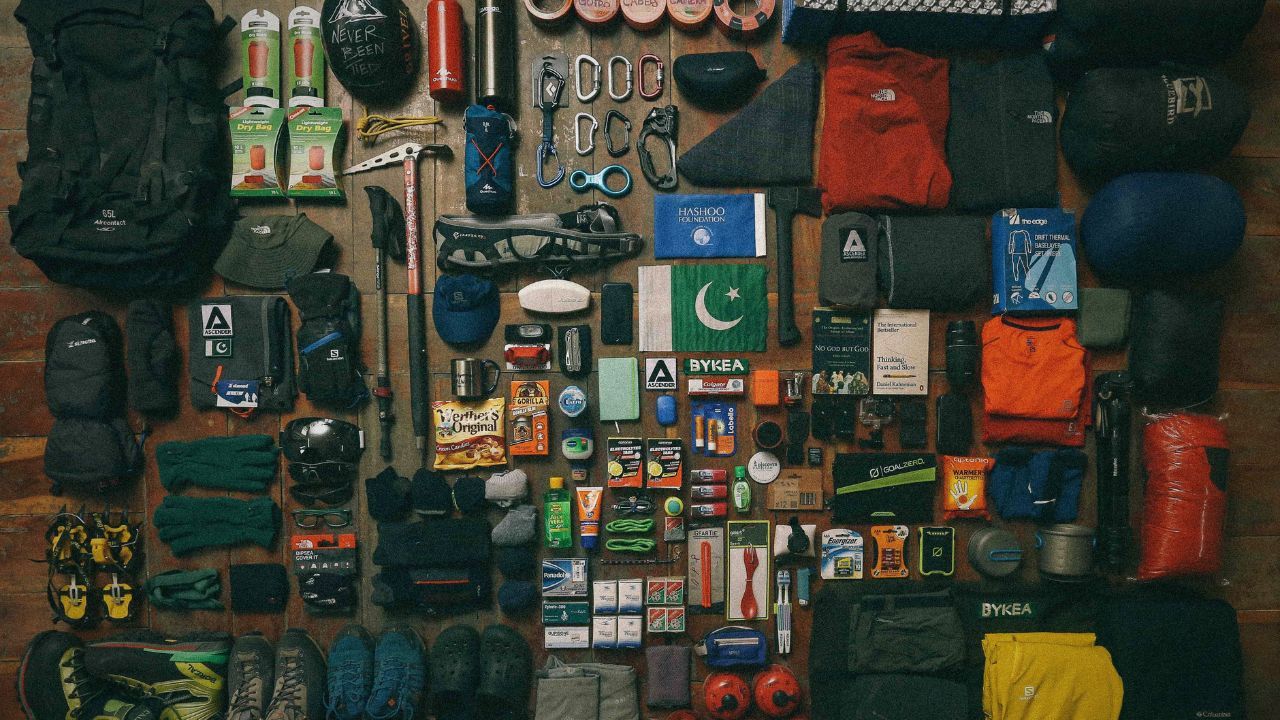
How to Store Camping Gear Like a Pro: Conquer Clutter
Explore how to store camping gear effectively with our thorough guide, filled with expert recommendations on organization, cleaning, and storage.
So, you've had a fantastic time exploring the great outdoors, and now it's time to pack up and store your camping gear. But wait - don't just shove everything into a corner of your garage and call it a day.
Proper storage is essential for keeping your gear in tip-top shape, ready for your next adventure. Trust me, investing a little time and effort now will save you from headaches (and potentially costly replacements) later on.
In this guide, we'll walk you through the best practices for cleaning, drying, and storing camping gear. By the end, you'll be a bona fide gear storage guru. Let's get started!
Cleaning and Drying Your Gear
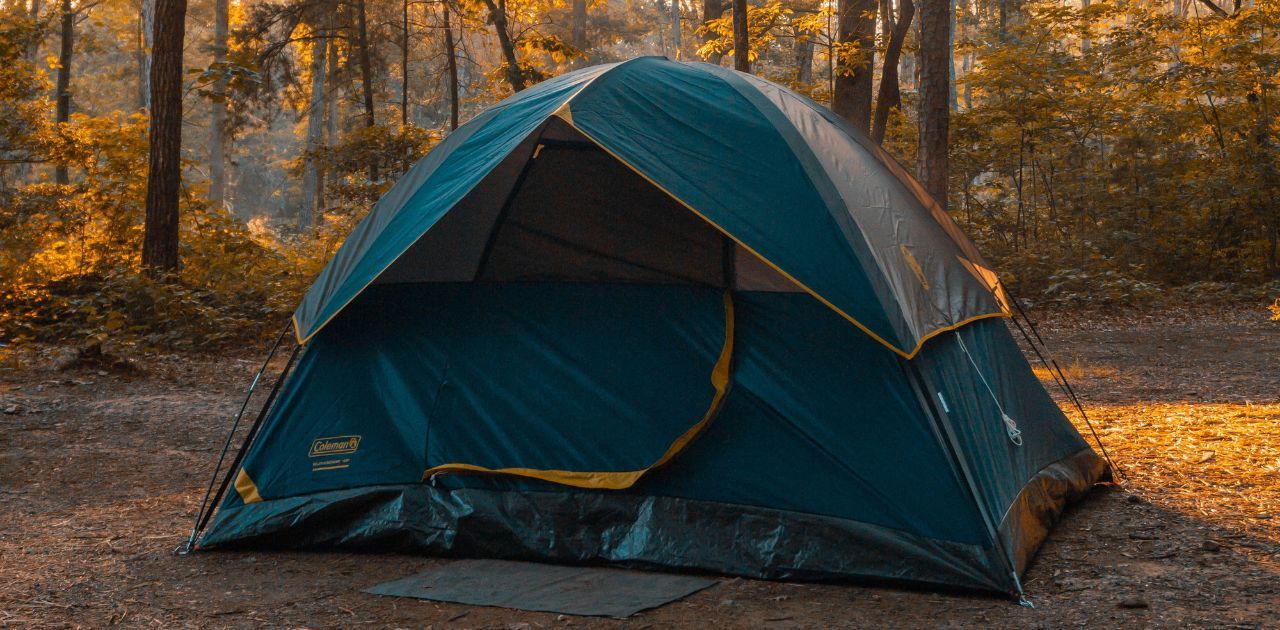
Tents, Tarps, and Groundsheets: Spa Treatment for Your Shelter
First things first: let's talk tents. After a long trip, your trusty shelter deserves some TLC.
- Start by setting it up one more time - this time, in your backyard.
- Grab a sponge, some mild soap, and water to gently clean the tent's fabric, paying special attention to any particularly dirty spots.
- Be sure to use a soft brush to clean zippers and remove any debris caught in them.
- When it comes to drying, Mother Nature is your best friend. Let your tent air dry in a shaded spot, as direct sunlight can damage the material.
- Once it's completely dry, fold or roll it up neatly and store it in a breathable storage bag.
Sleeping Bags and Pads: Sweet Dreams for Your Sleep System
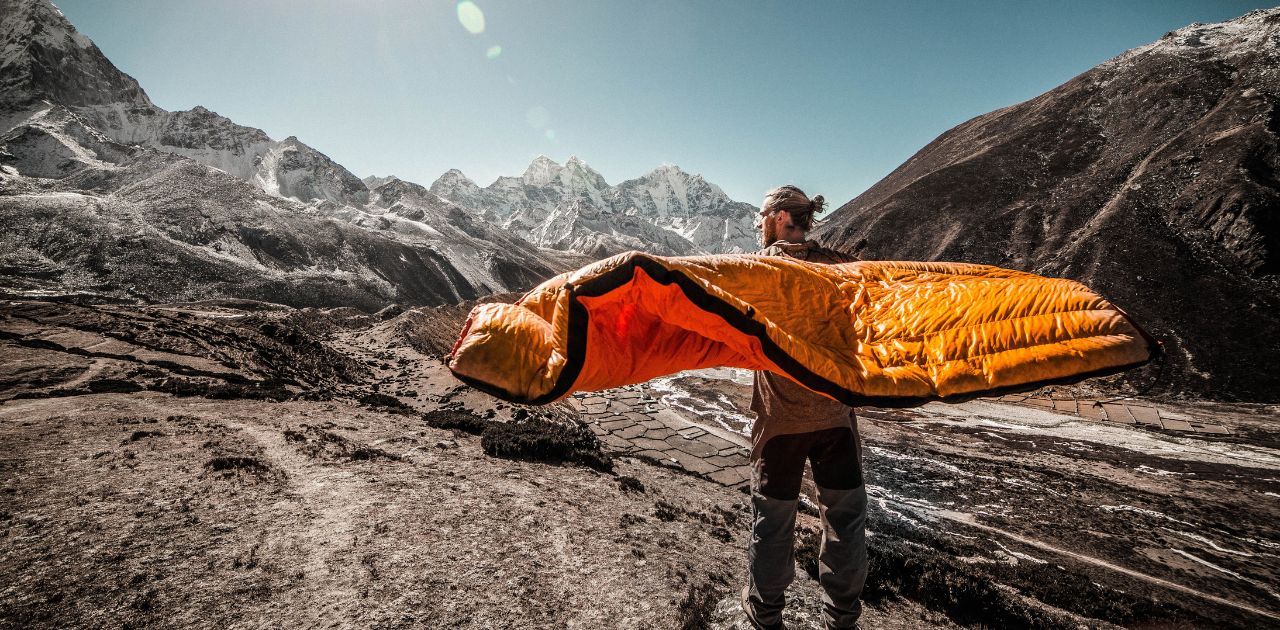
Your sleeping bag has kept you warm and cozy during those chilly nights under the stars. Show it some love by washing and drying it according to the manufacturer's instructions.
- Remember, gentle is the name of the game here - harsh detergents and high heat can damage delicate materials and insulation.
- It's not recommended to dry clean your sleeping bag as the solvents used can damage fragile materials and insulation.
- When it comes to storage, think fluffy, not flat. Storing your sleeping bag in a large, breathable storage sack or hanging it in a closet will help maintain its loft and insulation.
- As for sleeping pads, simply wipe them down with a damp cloth and let them air dry before rolling them up for storage.
Cooking Equipment: A Spotless Kitchen, Even in the Wild
No one likes doing dishes, but cleaning your camping cookware is a must.
- Scrub pots, pans, and utensils with warm, soapy water, making sure to remove any stubborn food residue.
- For your camping stove, consult the manufacturer's instructions for proper cleaning and maintenance.
- Before storing your cooking equipment, ensure everything is completely dry to prevent rust and funky odors.
- Nest smaller items inside larger ones to save space and keep things organized.
Clothing and Footwear: Fresh Threads for Your Next Adventure
You wouldn't wear dirty clothes on your next trip, right? So don't store them that way! Wash and dry all your camping clothes according to their labels, taking care to follow any special instructions for waterproof or technical fabrics.
- As for your trusty hiking boots, give them a good scrub with a soft brush and some mild soap.
- Remove the insoles and laces before allowing them to air dry at room temperature.
Organizing Your Camping Gear
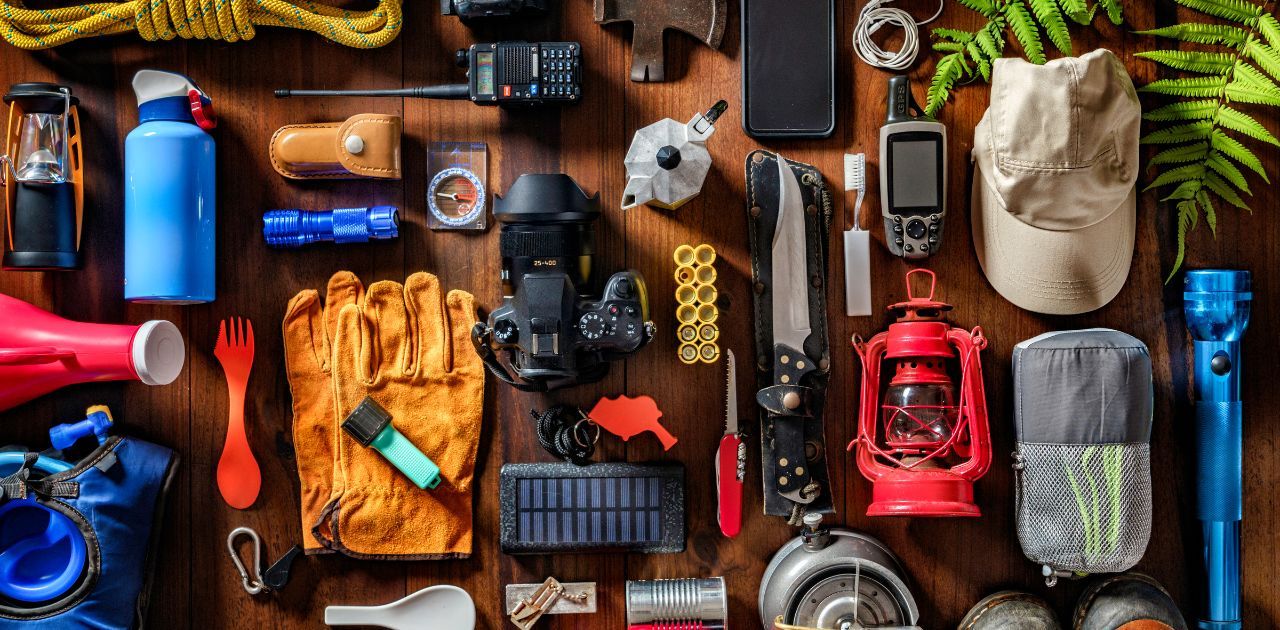
Categorizing Items: The Art of Gear Feng Shui
Organization is key to keeping your gear in tip-top shape and making packing for your next trip a breeze.
- Start by sorting your items into categories based on their function, like shelter, cooking, clothing, and so on.
- Next, consider how often you use each item and create a storage system that prioritizes easy access to your most-used gear.
Storage Solutions: A Place for Everything and Everything in Its Place
Now that you've got your gear sorted, it's time to find the perfect storage solution.
- Clear plastic bins are a great option for most items, as they allow you to see what's inside and keep everything protected from dust and moisture.
- For larger items like tents and sleeping bags, consider using breathable storage bags or hanging them in a closet.
Don't have a lot of space or working with a tight budget? No problem! Learning how to organize camping gear may require thinking creatively.
- Get creative with DIY storage ideas like repurposing old furniture, installing pegboards, or using tension rods to create makeshift shelves. Great for hanging ropes, bags, and other camping gear.
- To maximize camping equipment storage space, consider using IRIS stackable bins. They're clear, stackable, and have a sealing lid to keep moisture out.
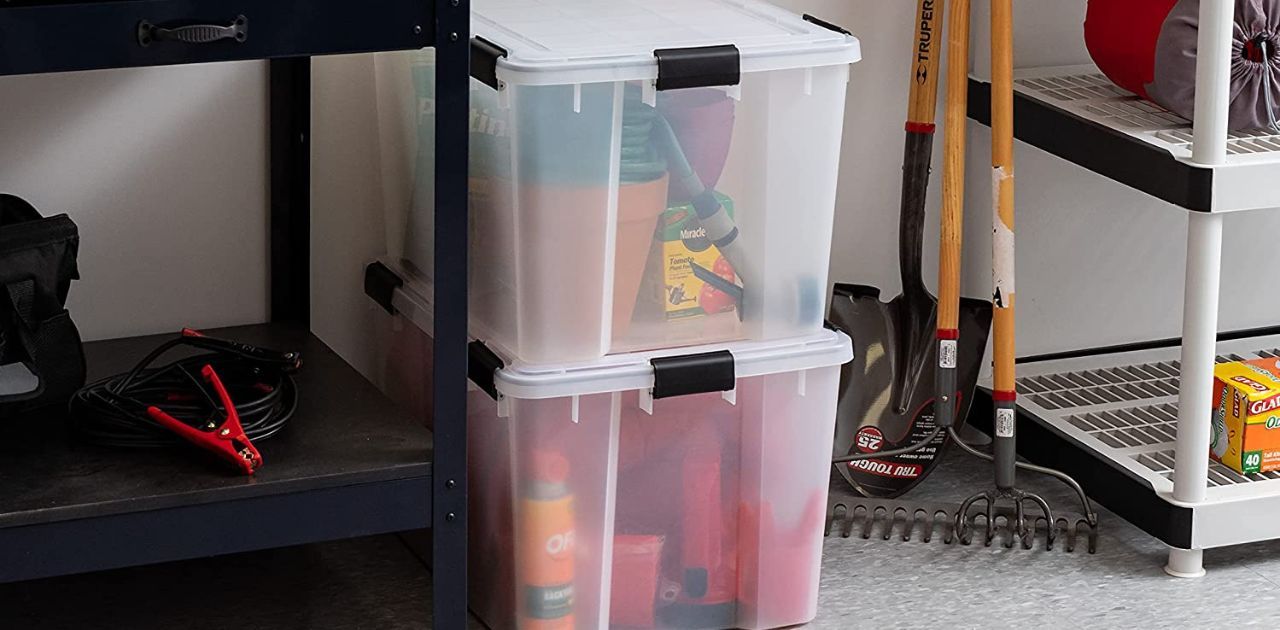
Labeling and Inventory: Know Your Gear Like the Back of Your Hand
Once you've got everything stored away, take a moment to create a gear inventory list.
- This will help you keep track of what you own, assess what you might need to replace or upgrade, and make packing for trips a breeze.
- For an extra level of organization, label your containers and storage areas so you can easily identify where everything belongs. Trust me, future you will thank you for this!
Storing Specific Gear Types
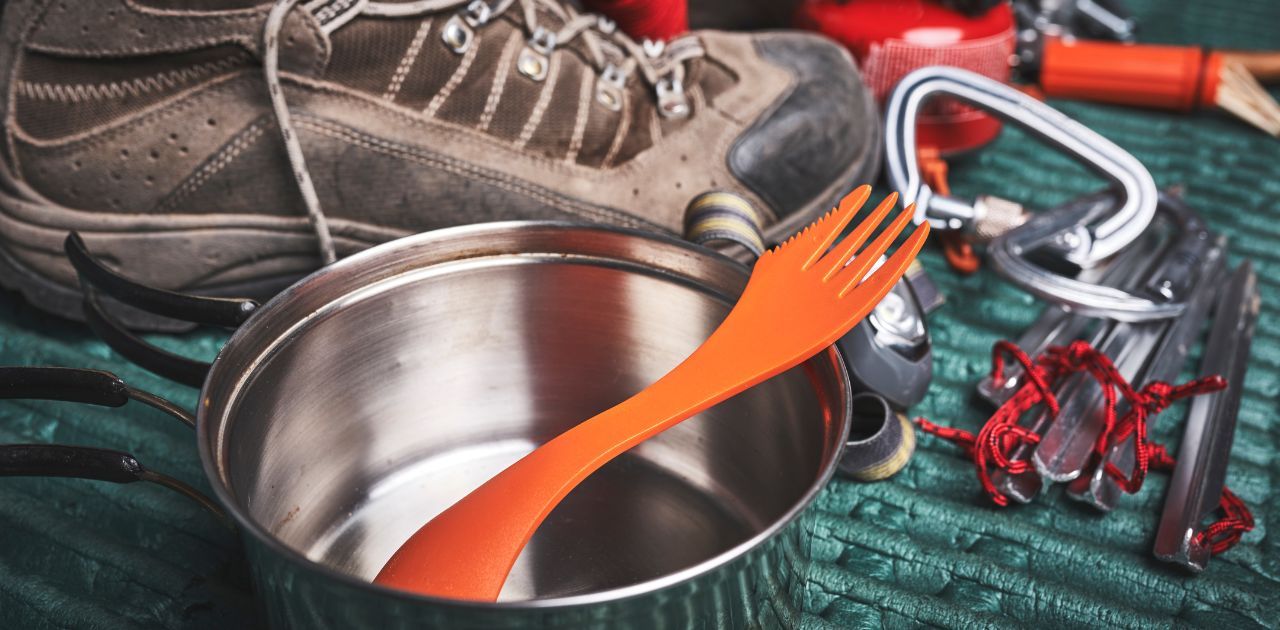
Tents, Tarps, and Groundsheets: Preserving Your Home Away from Home
When storing tents, tarps, groundsheets, and footprints, proper folding and rolling techniques are essential to prevent mildew and damage.
- Remember to always store them completely dry and in a breathable storage bag or container.
- To keep your tent's poles and stakes organized, consider using a separate bag or compartment within your storage container. This will also help protect the fabric from any accidental punctures.
Sleeping Bags and Pads: A Well-Rested Storage Plan
As mentioned earlier, storing sleeping bags and pads properly is crucial for maintaining insulation and loft.
- Avoid compression by using large, breathable storage sacks or hanging them in a closet.
- When it comes to sleeping pads, store them flat or with minimal folding to prevent creasing and damage.
Cooking Equipment: Safety First in Your Outdoor Kitchen
Store stoves, fuel, and cookware safely to prevent accidents and prolong their lifespan.
- Keep fuel canisters in a cool, well-ventilated area away from direct sunlight, and never store them inside your stove.
- For utensils and accessories, consider using a dedicated organizer or pouch to keep everything tidy and easy to find.
Backpacks and Bags: Keeping Your Adventure Companion in Shape
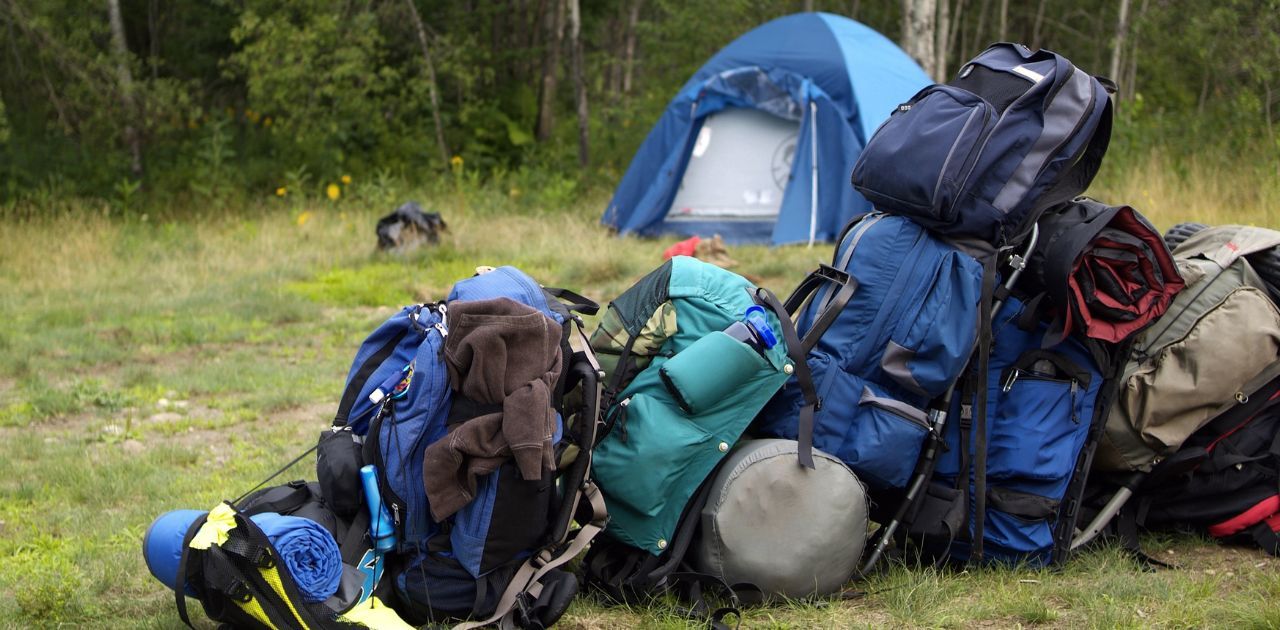
Different backpack sizes and styles may require different storage methods.
- For larger packs, consider hanging them on a sturdy hook or peg to maintain their shape and structure.
- Smaller bags can be stored on shelves or inside larger packs to save space.
- Before storing your backpack, empty all pockets and compartments, and give it a thorough cleaning according to the manufacturer's guidelines.
- Depending on how dirty it is, I can usually just shake it out and wipe it down.
- And don't forget to loosen all straps and buckles to prevent unnecessary tension and wear.
Seasonal Storage Considerations
Summer Gear: Keep Your Sunny Essentials Fresh and Ready
Ah, summertime - the season of lightweight clothing, bug repellent, and sun protection.
- To keep your summer gear fresh and ready for use, store clothing in breathable containers or bags, and separate them from your winter wardrobe.
- For items like bug repellent and sunscreen, check the expiration dates and store them in a cool, dry place away from direct sunlight.
Winter Gear: Protecting Your Cold-Weather Companions
Store cold-weather clothing, snowshoes, and other winter-specific items in breathable storage containers or bags, separate from your summer gear for better organization.
- If you have any battery-operated items like heated gloves or socks, remove the batteries before storing them to prevent corrosion and damage.
- And don't forget to give your winter gear a thorough cleaning and inspection before storing it away, so it's ready to go when the temperatures drop.
On Your Way To Becoming a Camping Gear Storage Master
And there you have it - a comprehensive guide to properly storing your camping gear. By investing a little time and effort into organizing your outdoor gear, you'll not only prolong its lifespan but also make packing and preparing for your next camping trip a breeze.
Having your camping gear organized allows you to focus on the items you really use most often. And eliminate items you don't find useful.
Remember, an organized camper is a happy camper. So go forth, channel your inner gear storage guru, and get ready for an even better camping experience on your next adventure. Happy trails!
Recommended For You...
